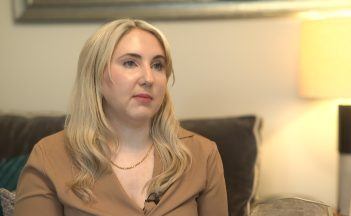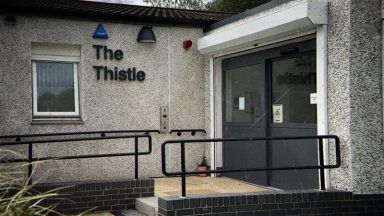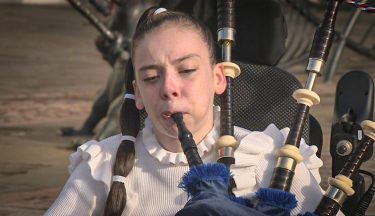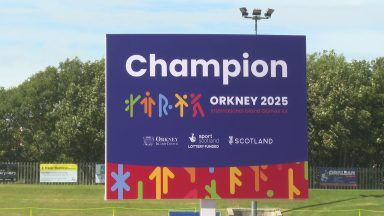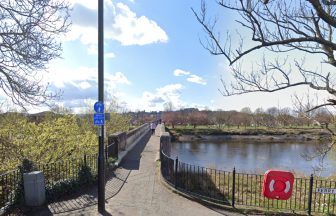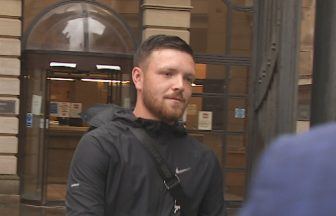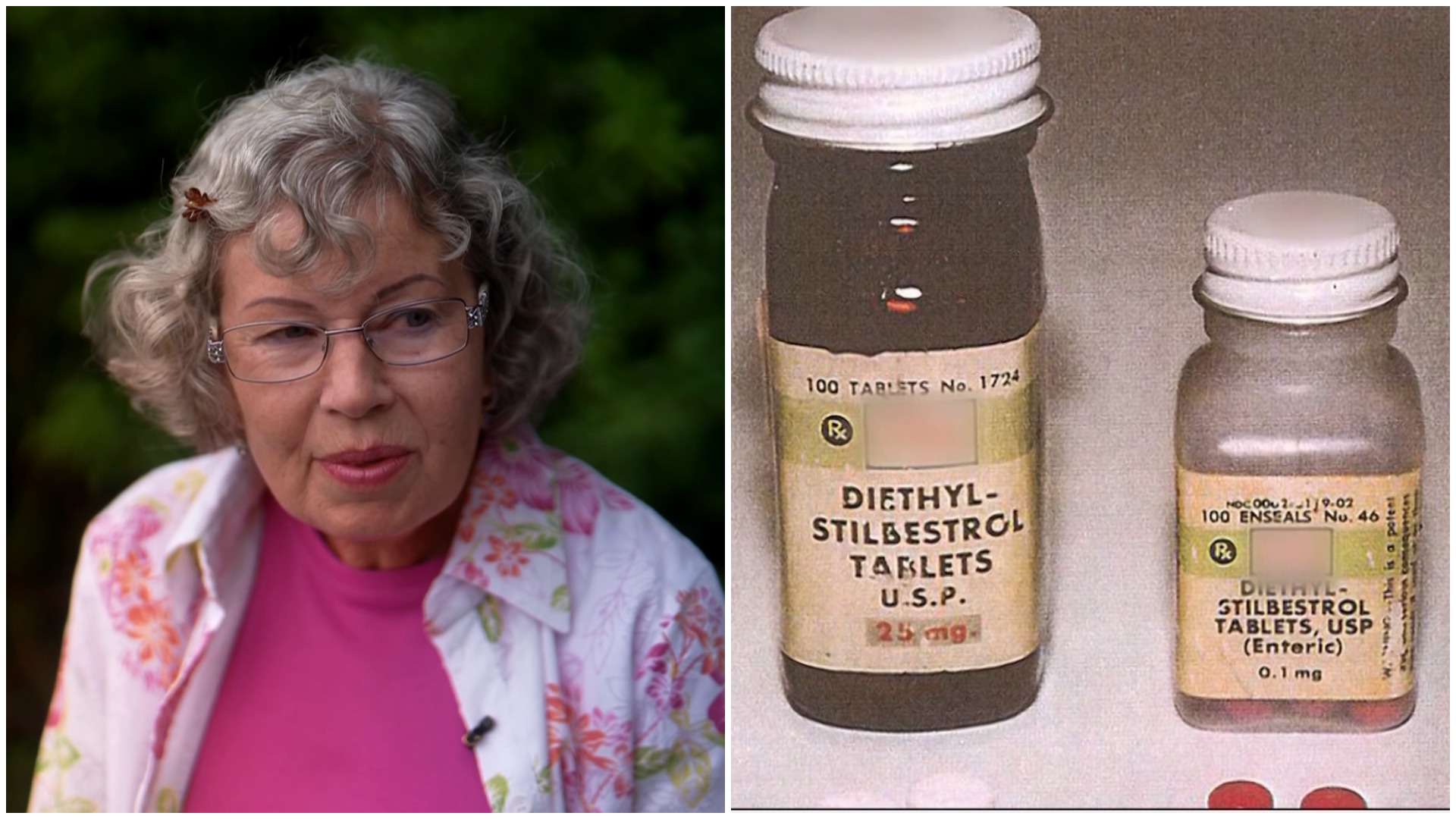The number of teachers providing a lifeline service to deaf pupils in mainstream schools has fallen by 40% in a decade – and more are due to leave the profession in the coming years.
It’s a shift that could further widen the attainment gap between deaf young people and their hearing peers.
Dedicated Teachers of the Deaf, as well as those who benefit from their services, say more needs to be done to stop the crisis.
Tommy’s story
 STV News
STV NewsTommy Graham has cochlear implants.
His first language is British Sign Language, but he’s been seeing Amanda McNamara, a Teacher of the Deaf since he was very young.
“I’ve had Amanda since I was two-and-a-half. I was a wee baby and she helped me to speak. So that’s how I can speak now because of her,” Tommy told Scotland Tonight.
“If I need help then normally Amanda comes in and I get more like, happier, cause she’s helping me and I’m not suffering. It’s always better when someone is helping you that you’ve known for your whole life and if I need someone to speak to, I can always go to Amanda.”
A teacher of the deaf plays a crucial role in helping deaf children overcome the barriers they face during their early years and in education.
“We are teachers, so we will teach our children in groups, or in classes, or in one to one,” said Amanda. “We’ll check their hearing aids and their cochlear impacts, to make sure they are working.
“We will check their radio aid systems or sound fields and put them in. We do specialist assessments with the pupils for their language and communication and then we interpret that, so it makes sense to schools and parents.
“On the other side of that we are coaches, we are mentors, we are constantly upskilling ourselves because the role changes. With every new piece of technology that comes out we have to be upskilled in that.”
Tommy, whose mother is also profoundly deaf, goes to Clydebank High School and sees Amanda, who is employed by West Dunbartonshire Council, three times a week.
“Sometimes I suffer with Maths and English. She helps me out. When I do a question sometimes, I see it and I’m like I need someone to help me out and break it up in bits and it helps me a lot.
“She helps me with my speech and my transmitter and tells the teachers to speak louder, clearer. It helps me and I am better in that way.”
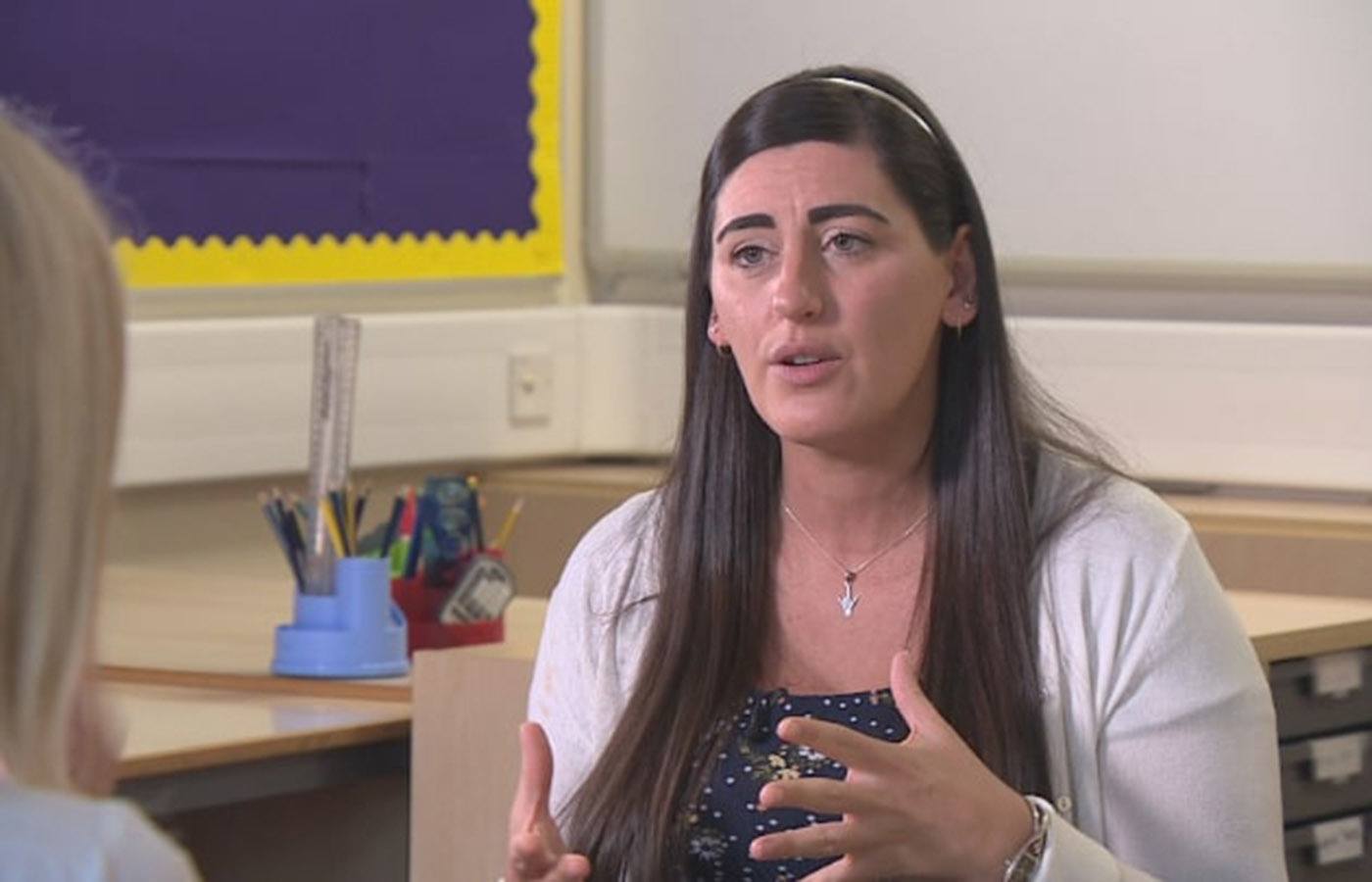 STV News
STV NewsWhen asked by STV News presenter Kelly-Ann Woodland where he would be without Amanda, Tommy said: “That would be a lot different; I wouldn’t be the way I am.
“I probably wouldn’t be able to speak today cause like Amanda is the one who is helping me, and my family helps me as well, but Amanda is the one cause she’s a professional and she’s trained and she’s really brilliant at it.
“I’m happy to have her on my side.”
There are currently only 100 qualified teachers of the deaf who work in Scottish schools, despite there being just over 3,300 deaf children across the country.
According to the Consortium for Research in Deaf Education, 84% of school-aged deaf children attend mainstream schools. One of the reasons the percentage is so high is because of the assistance provided by advanced technology such as hearing aids and cochlear implants.
Amanda says she feels deaf children who don’t have a dedicated teacher are at a huge deficit.
“We understand what deaf children need. You know obviously every child is different and we see that. But deaf children quite often need the same sorts of things and we’re very good at being able to say to first of all, families, then nurseries and then schools and so forth, this is what you need to do for this pupil.
“This is what they require. But we use pupil voices. We will when the pupils are old enough to tell us what they need, we ensure that that is incorporated.”
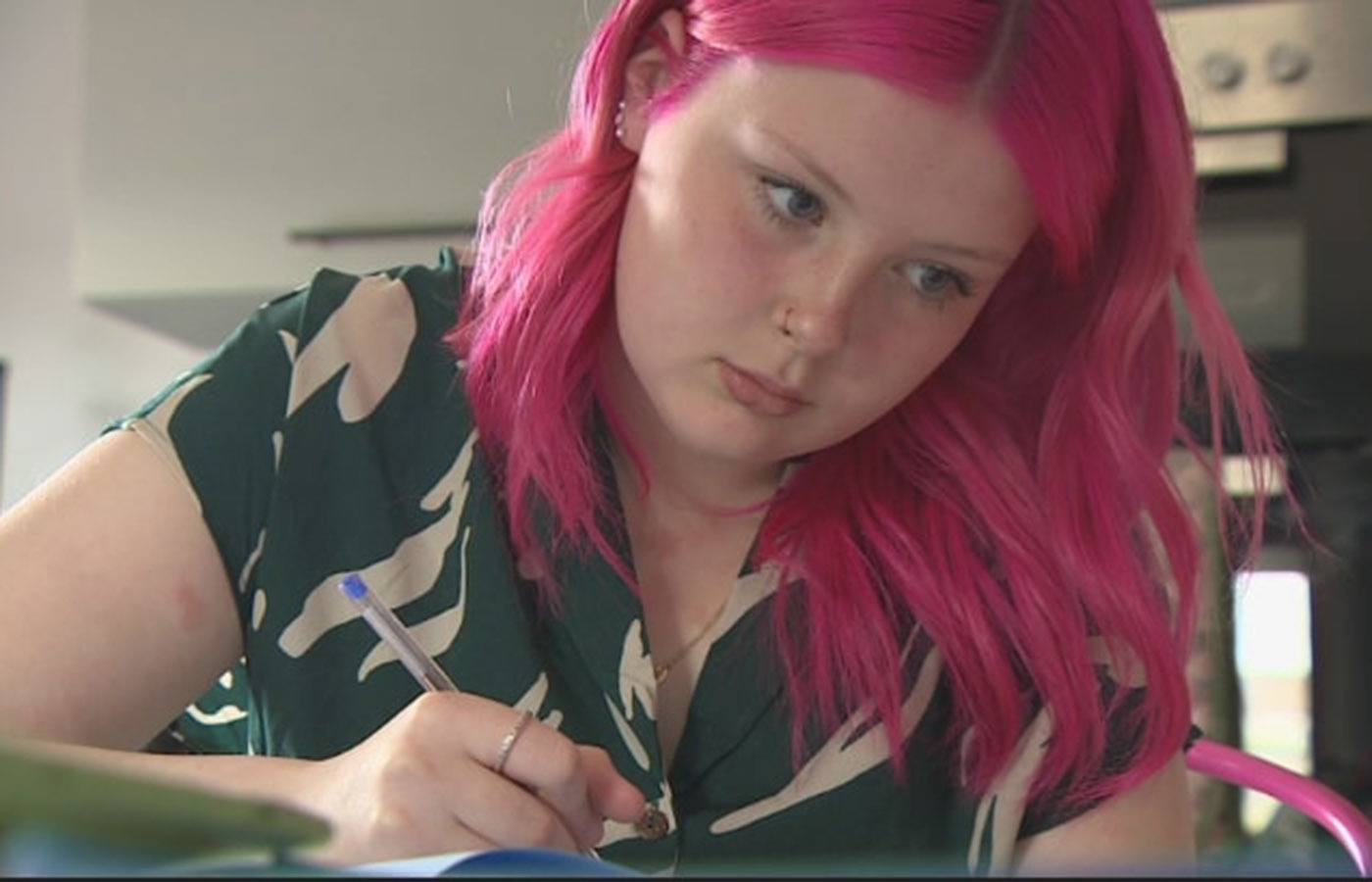 STV News
STV NewsMegan Laird, a 14-year-old from Fife, was diagnosed as deaf when she was eight years old, but she didn’t see a teacher of the deaf regularly until she was in high school.
“She helps me if I have any problems or if I’m stressed. She comes in and helps me to make sure I’m not like that.
“Everything is ten times easier with her. It is a bit tricky without her.”
Megan’s mother, Gemma, says when her only daughter started seeing a teacher of the deaf it took a huge pressure off her shoulders. She says it led to Megan’s confidence and coursework significantly improving.
“When it all happened, we could all just breathe a sigh of relief. It was fantastic and now I know if there is a problem that arises, I am straight on the phone so I can quickly access Kerry who is Megan’s teacher of the deaf.
But despite the enormous benefits provided by Teachers of the Deaf, almost half (45%) are due to retire in the next 10 years. Pair that with the already declining number and it paints a bleak picture for the future of deaf children in Scotland.
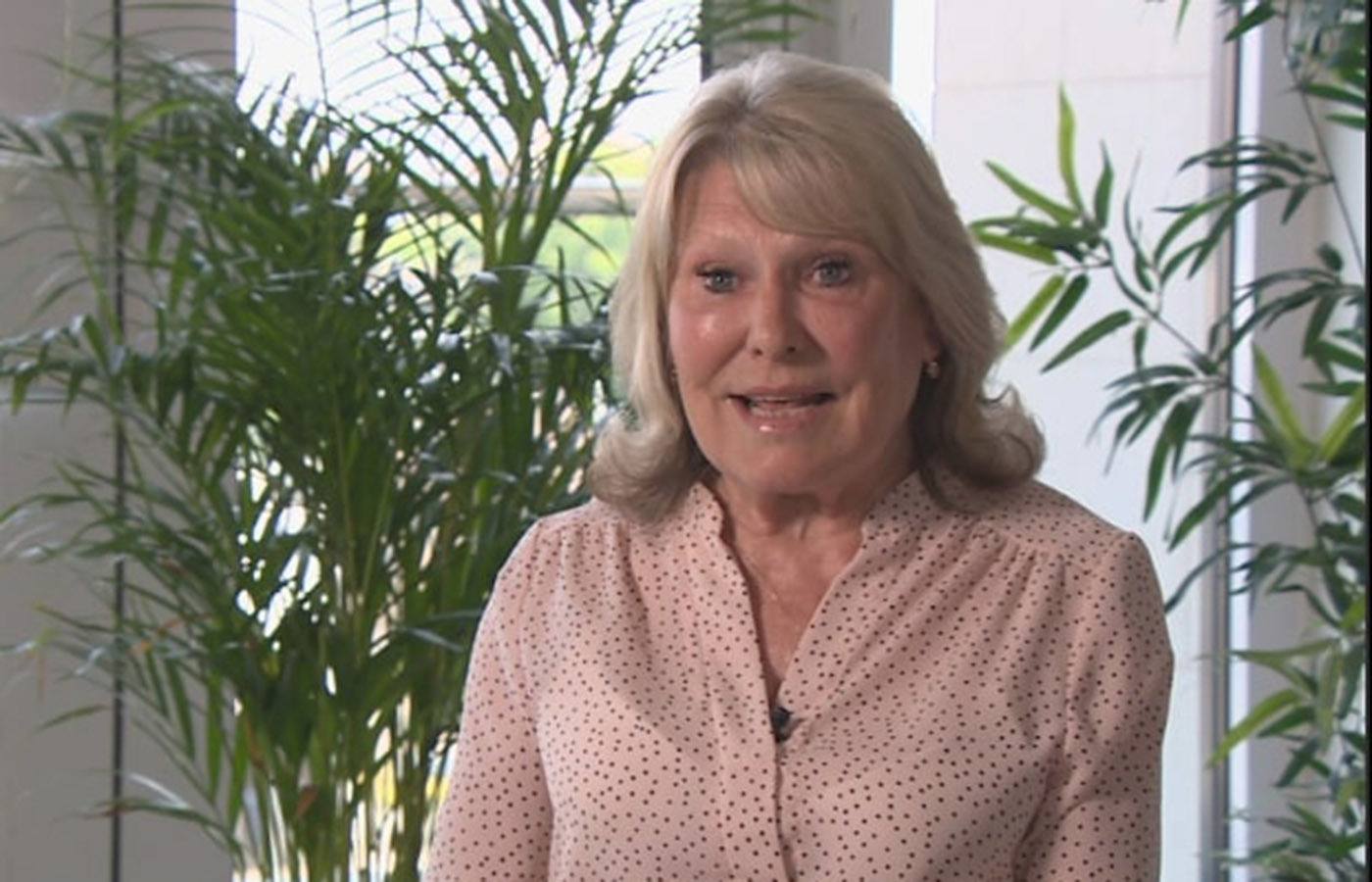 STV News
STV NewsCathie Finestone, who recently retired after more than 40 years in the role, says even though the profession is rewarding, it’s hard to attract new people.
She said: “Who would want to take on a five-plus year training course when at the end of it there’s no financial incentive, they don’t get any increase in wage.”
Cathie says the funding for Teachers of the Deaf is decided by local councils.
“Whereas if the government just put the funding into training the teachers, then they would have the resources,” she added.
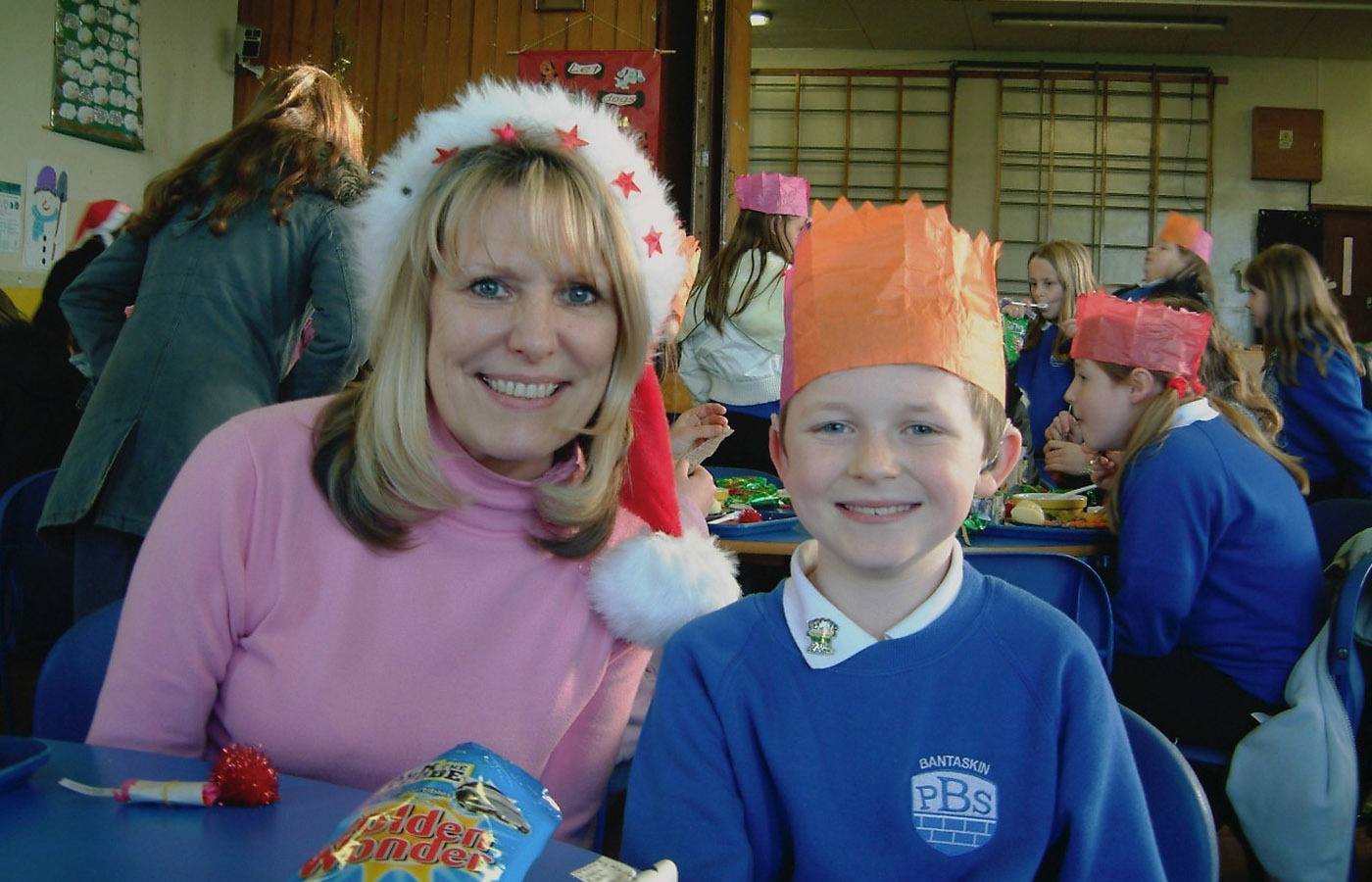 STV News
STV NewsDeaf children in Scotland are twice as likely as their hearing classmates to leave school with no qualifications and are half as likely to go to university. And with so many teachers of the deaf due to retire in the next decade, the fear is the attainment gap will widen even further.
“It’s absolutely devastating because these children need support all the way through their schooling.’
“We have had a lot of very able deaf children who haven’t been able to access the support they need to go through higher and further education.
“They might achieve the qualifications they need but then they go to university, and they’ve got the same problems that they had in school. They don’t have that Teacher of the Deaf or someone to support them, so many of them just drop out.”
Dr Audrey Cameron, who is profoundly deaf, says there needs to be a full reform of deaf education in Scotland.
Dr Cameron has a PhD in Chemistry and has taught in mainstream schools alongside interpreters. She is a tutor at Edinburgh University, the only university in the United Kingdom to have a BSL development officer.
“It is really important people are working together to encourage deaf students to achieve because I think the situation now is the same as what I went through when I was at school to be honest. It needs transformed.
“To get the full understanding of what’s being taught and to be able to chat and be able to learn from each other is amazing. That’s the kind of transformation that I think we need to be looking for.”
Scottish Government view
A Scottish Government spokesperson told Scotland Tonight: “Education authorities have a duty to identify, provide and review the additional support needs of their pupils, including those affected by deafness, under the Additional Support for Learning Act.
“The Scottish Government also provides over £500,000 to voluntary sector organisations to support children and young people with additional support needs, including sensory loss.
“This includes £150,000 to the Scottish Sensory Centre to support training to increase the capacity of staff in schools to provide effective support to deaf pupils.
“The Scottish Government enables further and higher education institutions to provide tailored support for deaf students in line with their equality’s duties.
Councillor Tony Buchanan, Cosla’s children and young people spokesperson, said: “Scottish Government and Cosla jointly own the additional support for learning action plan.
“It sets out a range of measures that councils, the Scottish Government and partners are taking to enhance the experiences of children and young people with additional support needs.
“Decisions about the teaching and school workforce are made at a local authority level based on the needs of their communities. Nationally, the figures for all school staff (FTE, including teachers, pupil support, behaviour support, link workers and educational psychologists) have increased markedly since 2018.”
For the full story on, tune into Scotland Tonight on STV at 8:30pm on Thursday, or catch up on the STV Player.
A British Sign Language interpreted version of Thursday’s programme will also be available on the STV Player at 8:30pm.
Follow STV News on WhatsApp
Scan the QR code on your mobile device for all the latest news from around the country


